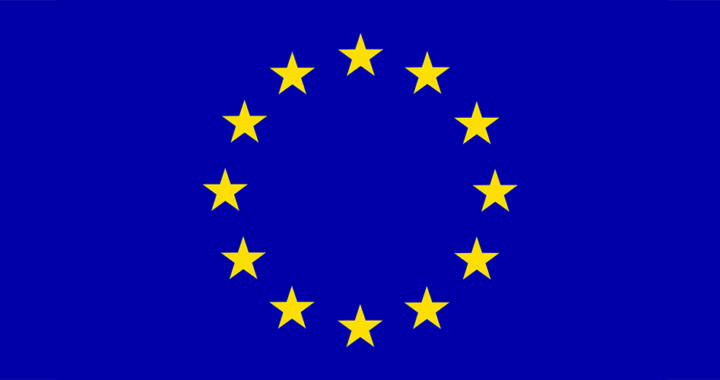The European Union or EU emerged as a political and economic union after the Second World War. It was the successor to the European Economic Community or EEC formed in 1957 via the Treat of Rome. The EU was subsequently established in 1993 via the Maastricht Treat as a more robust supranational block than EEC.
Nonetheless, the primary purpose of the EU is to promote efficiency and seamlessness in how countries in Europe handle processes concerning trade and immigration within the continent, as well as develop integrated economic policies. However, from this primary purpose are more detailed and specific purposes behind the bloc.
The Purpose of the EU: Why was the European Union Created?
1. Maintenance of Peace through Unification
There have been several attempts to unify various jurisdictions across Europe. For example, during and after the fall of the Western Roman Empire in 476, the fall of Constantinople in 1453, and the French Revolution beginning in 1789, notions and proposal about a supranational entity or intergovernmental organization had been recommended to stabilize the region politically and economically.
After World War II, the integration of Europe was regarded as a solution to the extreme nationalism that caused conflicts between European nations and states. Then United Kingdom prime minister Winston Churchill campaigned for the creation of the United States of Europe that would generally function similar to the United States of America.
The Council of Europe was formed in 1949 as an international organization. Take note that the perceived primary purpose of this council and thereby, the purpose of integrating Europe that time centered primarily on advancing human rights and democratic principles, while also maintaining political stability across supposed member-countries. Economic concerns and trade issues were not the primary focus at that time.
However, some statesmen and countries deemed the council ineffective. Hence, Belgium, France, Italy, Luxembourg, the Netherlands, and West Germany formed the European Coal and Steel Community in 1951 via the Treaty of Paris. This organization marked an attempt to focus integration toward economic goals and objectives, thus becoming the predecessor of EEC and subsequently, the EU.
2. Development of an Internal Single Market
The primary purpose of the European Union has been adopted from the collective goals and objectives of the European Economic Community. To be more specific, EU has the purpose of developing and maintaining a single market within Europe with goals and objectives revolving around free trade or free movement of goods and services, as well as the free movement of people and capital.
EEC failed to create an internal single market because it lacked effective decision-making structures and institutions. In addition, member-countries of EEC still maintain several barriers to trade to include protectionist attitudes and incompatible standards and regulations. Hence, another more specific purpose behind the creation of the EU is to create relevant structures and institutions, as well as shared economic policies, including common standards and regulations pertaining to trade.
The integration of a single economy also means the development and enforcement of other economic policies about agriculture, fisheries, resource exploitation, and regional development. EU has set specific guidelines in the proper utilization of economic resources, often setting limits to promote sustainability and ecological conservation.
As an economic bloc, the EU oversees the economic activity of the entire region. For example, it maintains a central bank and uses a unified currency. It also develops and implements policies aimed at improving the economic soundness of member-countries. There are also policies geared toward tackling issues such as climate change, energy supply, and globalization.
3. Political Cooperation and Foreign Relations
Remember that the organization is not just an economic bloc. Another purpose of the European Union is to promote political cooperation and foreign relations among its member-countries. Part of the ideas about European integration comes from the need to maintain political stability across the continent through diplomacy or foreign relations.
However, it is important to note that international relations, in general, remains largely an intergovernmental matter, with EU member-countries controlling their foreign affairs to a large degree. Of course, there have been several instances when the EU operated as a single political actor in the international arena, particularly during trade agreements and energy matters.
There is also a unified mechanism for security and defense diplomacy and actions. EU has the Common Foreign and Security Policy department primarily responsible for such. It coordinates with the North Atlantic Treaty Organization regarding territorial defense. It also develops and participates in international peacekeeping missions and security policy forums.
Internally, the EU promotes and protects conventions pertaining to the rights of EU citizens. Note that the organization has also been founded based on values the respect human dignity, freedom, democracy, equality, and the rule of law. Member-states are required to enforce treatise signed and ratified by the EU such as the Charter of Fundamental Rights of the European Union based on the Lisbon Treaty that took effect in 2009.
A Note on the Criticism about the Purpose of the European Union
The aforementioned details about the purpose, as well as the goals and objectives or roles and responsibilities of the European Union, are general. It is important to note that the body of treatise, frameworks, agreements, and deals behind the organization is not only comprehensive but also complicated.
Consider why the United Kingdom left the EU as an example. Despite the use of a single euro currency across the EU, the U.K. has maintained the pound sterling. Another example is the Eurozone and its difference with the EU. The Eurozone is specifically a monetary union of some EU member-countries. Several non-EU countries and states have been allowed to use the euro currency.
Essentially, the EU has several issues that all boil down to bureaucracy. The integration of different governments under a single supranational government entity has brought forth conflicts due to differences or disagreements in positions. The complications and issues have represented some of the significant criticism toward the EU and toward political and economic integration within the region.

